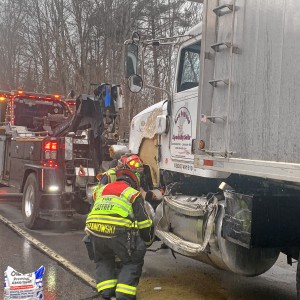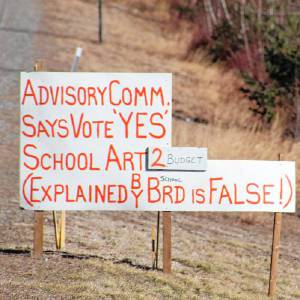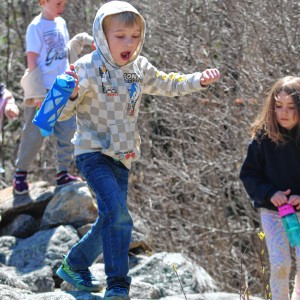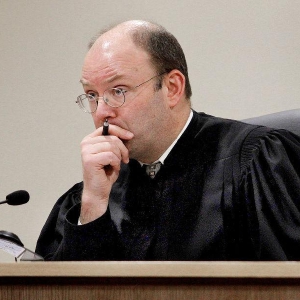History: Wild animals posed a threat in settlers days
| Published: 05-01-2019 2:46 PM |
Wild animals are frequently mentioned in the old town histories; settlers had to contend with bear and moose and wolves. Ironically, at the time many of the histories were written, those critters had been largely killed off or driven off to more remote parts of the state.
Of course, we don’t have to contend with such creatures of the wild in the same way the settlers did. Bears and wildcats and wolves and such were a constant threat to farm animals in those days, and even to people, since the wilderness had not yet been tamed. Lyndeborough’s town history tells a few stories of life among the animals:
■ One pioneer, whose name did not come down through tradition, was plowing his fields when a moose came out of the woods and frightened his oxen. “In an attempt to scare the wild creature away, it rushed at him, threw him down, and with its forward feet punched at his to crush his head,” the history relates. “It, however, missed its aim, and sunk its sharp hoofs into the ground on each side, and went away, leaving him but little injured.”
■One Captain Wellman is reported to have killed a bear in its den, “when he could see little more than the glare of its eyes.” He had to go for help to drag the heavy animal out. Wellman’s two sons, Jacob, 10, and John, 8, had their own bear adventure. “About the year 1758, the boys were left alone by their parents one day. The gun hung in its accustomed place, and they were warned not to use it, for it was heavily loaded for a bear. They were also ordered not to leave the house for fear the bears might catch them. But no sooner were the parents out of sight than the boys took down the gun and started off into the woods. When about a half a mile from home they met a huge bear, which stood up before them. Jacob rested the gun on John’s shoulder and fired, and shot the bear dead. The boys then went home. When the parents returned they soon learned what had happened, and with the assistance of neighbors the bear was brought home.
“We may suppose that the father was so glad that his children were unharmed and had made such an excellent shot that he did not insist on trouncing them as they deserved for their disobedience.”
■One year, bears invaded the cornfields in Johnson’s Corner. The settlers went out with their guns and set traps, but could not catch the animals. Finally, they turned to Osgood Carleton, a skilled trapper and hunter, who set up a gun trap and then spent the night at the Carson place. “In the gray dawn of the next morning,” the history reports, “the old Scotch housekeeper called out, ‘Osga, your gun gaed off!’ Stopping only for his pants, – barefoot – he repaired to the scene. It was not yet light. He could see no bear. He jumped from the fence on what seemed to be a black log, and landed plumb on the dead bear, which was said to have weighed over 400 pounds.
■Another story that came down told of Andrew Harwood, a boy who would bait wild turkey with corn at a place called Carkin Hill. “He fixed a place for them to put their heads through to get the corn so they would be in a straight row,” the history tells us. “A flock came, and while eating he fired from his ambush and killed eight of them at a single shot.”
■One of the early residents had a pet dog – a large, shaggy creature. One day, the dog surprised a wildcat. The cat grabbed the dog, “and gave him a furious shaking.” The settler had his gun on hand, and shot the wild animal, saving his pet’s life.
Article continues after...
Yesterday's Most Read Articles
 UPDATE: Drivers identified in Jaffrey dump truck crash
UPDATE: Drivers identified in Jaffrey dump truck crash
 Conant baseball shows its strength in win over Mascenic
Conant baseball shows its strength in win over Mascenic
 Group looks to close divide in Mascenic district
Group looks to close divide in Mascenic district
 Bernie Watson of Bernie & Louise dies at 80
Bernie Watson of Bernie & Louise dies at 80
 Rindge Recreation Department organizes a trip to Converse Meadow
Rindge Recreation Department organizes a trip to Converse Meadow
 Scott Bakula starring in Peterborough Players’ ‘Man of La Mancha’
Scott Bakula starring in Peterborough Players’ ‘Man of La Mancha’
“Wild animals, as all are aware, were numerous in the early days of our town,” the historians wrote. “The moose, though less common than the deer, was not a great stranger to our territory. The bear, the wolf, the beaver, the sable had their dwelling places on our hills and along our streams.”
Those days were gone by the time the history was published in 1906, however: “Bears and wolves have entirely disappeared from our town. So have also the moose, which probably never were numerous.”
A Look Back originally appeared in the Monadnock Ledger.
]]>

 Opinion: It’s time to properly fund education
Opinion: It’s time to properly fund education
